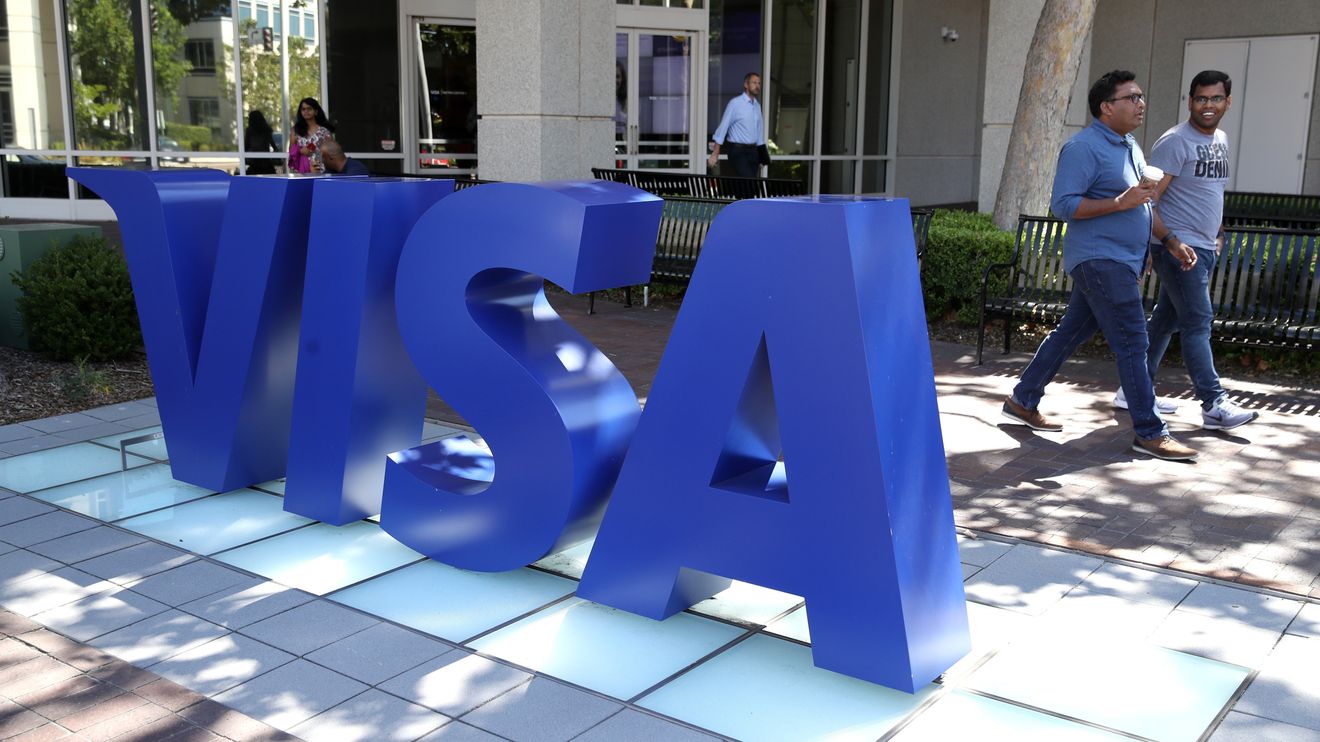Visa Inc. topped earnings expectations for its latest quarter Tuesday as the payments giant continued to call out strong consumer spending trends.
Payments volume at Visa
V,
grew 10% in the fiscal fourth quarter, while processed transactions increased 12%. Visa’s revenue rose to $7.79 billion from $6.56 billion and came in ahead of the FactSet consensus, which was for $7.55 billion.
“If you just looked at our numbers and didn’t look at what people are writing or saying in the media, you wouldn’t think there’s all this anxiety or uncertainty out there or that people aren’t feeling good about things,” Chief Financial Officer Vasant Prabhu told MarketWatch. “The numbers have been steady for nine months and spending is stable almost everywhere in the world and quite strong.”
Through its results, Visa has seen “no evidence of consumers feeling a pinch, consumers feeling anxious,” he added.
See also: American Express says spending remains strong as earnings top expectations
This most recent earnings report was highly anticipated because Visa has a September-ending fiscal year and typically offers an annual forecast on its fiscal fourth-quarter earnings call. Indeed, the company did so, with Prabhu telling investors on the call that Visa currently expects reported nominal dollar net revenue growth in the high single-digit range, though he acknowledged that the economic situation is fluid.
“As we’ve said before, we are not economic forecasters,” he said, according to a transcript provided by Sentieo/AlphaSense. “Clearly, there’s a high risk of a global recession, but we do not have a specific point of view on if, when or the kind of recession we might have.”
He added that “for internal planning purposes,” Visa is “assuming no recession.” But the company remains “vigilant” and will have “contingency plans in place should we have an economic or geopolitical shock that impacts our business.”
Visa shares were up about 1% in after-hours trading Tuesday.
Chief Executive Al Kelly commented on the earnings call that Visa has a “very different” business than it did in the last downturn, calling out that e-commerce is more mainstream, and noting that company is more deeply penetrated into everyday spending categories.
“We have a very heavy debit portfolio, which tends to perform better during these downturns,” Kelly said.
Prabhu elaborated further when speaking with MarketWatch, highlighting that Visa didn’t own Visa Europe at the time of the last recession, meaning that its business is now “truly global.” Additionally, the company has more of a presence in emerging markets like Brazil and South Africa, and a far bigger business in value-added services.
Kelly hinted on the earnings call that thinking about a downturn in the shadows comes with various uncertainties, seeing as “there still seems to be a lot of pent-up demand for travel, for example, which is a highly discretionary purchase,” and employment remains strong.
“So we’ll certainly watch if payment volumes are impacted in any kind of significant way,” Kelly said.
Visa saw 36% growth in cross-border volume during the September quarter, or 49% growth when excluding transactions made within Europe. Cross-border payments occur when someone with a card issued in one country makes a payment at a merchant based in another country. While the cross-border category is generally seen as a proxy for travel spending, it also captures international e-commerce.
On the travel point, Prabhu told MarketWatch that consumers “are still interested in experiences and doing things they couldn’t do for a long time.”
Visa is starting to lap stronger cross-border performance from a year ago, “so the rate of growth inevitably has slowed,” he said on the earnings call. But he noted to MarketWatch that given continued difficulties in getting airfares and hotel rooms, some people might still not even have been able to pursue the travel they desire.
For the latest quarter, the company reported net income of $3.94 billion, or $1.86 a share, compared with $3.58 billion, or $1.65 a share, in the year-earlier period. After adjustments, Visa earned $1.93 a share, up 19% from a year prior, while analysts tracked by FactSet were looking for $1.87 a share.
Prabhu noted on the earnings call that Visa was” moderating expense growth” as it starts its new fiscal year, “so expense growth is clearly coming down from the levels you’ve seen.”
The company noted in its release that during October, its board of directors approved a new $12 billion stock-buyback program as well as an increase to the dividend. The quarterly cash dividend will be 45 cents a share, up from 38 cents prior, payable on Dec. 1 to shareholders of record as of Nov. 11.
Shares of Visa have lost about 10% so far this year as the Dow Jones Industrial Average
DJIA,
of which it is a component, has fallen 12%.
